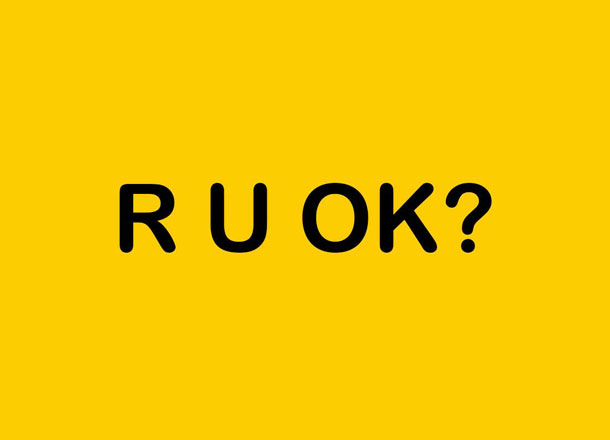
RUOK Day 2019
I was watching a Youtube clip the other day, Mark Gungor explaining how men’s and women’s brains differ. How men’s brains are made up of little boxes that don’t touch whiles women’s brains are a mass of interconnected wires, everything impacting on everything else.
It was hilarious. It was familiar. There was truth, to a point. (Here’s the link to that clip if you’ve not seen it and want to decide for yourself)
While I often think my mind is like a bowl of spaghetti, I know I can partition what’s happening and put it aside when needs be–like a few months ago when I needed to do a presentation on laughter wellbeing a couple of days before a family funeral.
The reality is ‘stuff’ comes with us, from work to home and from home to work.
Presenteeism alone is said to be a bigger problem for organisations than absenteeism.
Not slept well. Had words with your partner. Worried about an unexpected bill. Worried about your kid. Worried about another task that’s landed in your intray with a deadline of …yesterday! Started early, finishing late. Caught a snide remark. Heard there’s been a budget blowout. Hungry and angry. HANGRY. Hungry and anxious. HANGIOUS!
In Brisbane this week, the Australia and New Zealand Mental Health Health Association hosts its first workplace mental health symposium. HR professionals, business people and mental health workers serious about influencing a positive change in workplace culture to one of wellbeing. As the symposium kicked off, I was fortunate to plant the seed of laughter wellbeing’s place. I dream of laughter yoga sessions being part of the ‘everyday’ of workplace wellbeing programs, no different to a before work tai chi or lunchtime yoga class. I dare to dream because I know the evidence is there to support laughter yoga as a workplace wellbeing tool that destresses, uplifts, boosts productivity and creates connection.
But there are times when we can’t just laugh everything off. I know that too. We need tools that are fit for purpose.
RUOK? Day, next Thursday 12 September, shines the spotlight on the role we all have to watch out for another. The focus is on one day — the action is relevant year-round.
There are ways of asking. Check out the RUOK? How to Ask tip sheet
Don’t be afraid to ask ‘Are you okay?” (Do choose your moment please)
Do be open honest in your asking and give your attention and time to listening.
Encourage some appropriate action, offer support, and mean it.
And check in later.
Brisbane-based Heather Joy Campbell is a professional laughter wellbeing practitioner and global ambassador for laughter yoga. She uses the practice as a platform to deliver workplace wellbeing sessions and workshops and to train others in this accessible adaptable exercise format.

